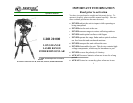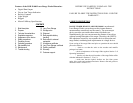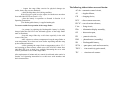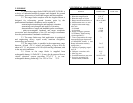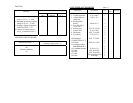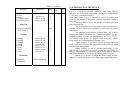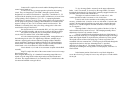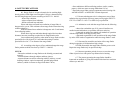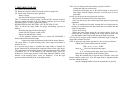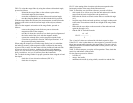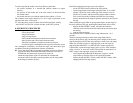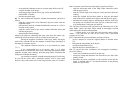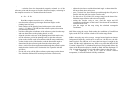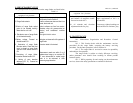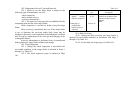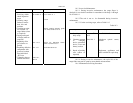Connector X1 couples the controls and the Rechargeable battery to
control circuit board (A1).
C1 and C2 are energy storage capacitors placed in the pumping
circuit. They are charged up to 700-1000 V through a special contact
designated A on control circuit board A1. Capacitor C3 and diodes V1, V2
are placed in the pumping circuit to prevent RF oscillations or reversal of the
voltage polarity across capacitors C1, C2. E1 – is a pumping flashtube.
Transformer T1 produces 10-15 kV firing voltage pulses to be fed to tube E1.
For the purpose, the primary winding of the transformer is furnished with a
negative voltage of 130 to 185 V fed from control circuit board A1. The
flashtube is externally fired, that is, the firing voltage pulse is fed to the
metal-clad envelope of the tube E1.
On circuit board A1 are mounted the DCC, AC ckt, power supplies
of the TIC and PhD assembly, and one circuit to analyze the battery charge.
On counter circuit board (A3) are arranged the counting-logic
circuit of the TIC and the TSGC of the PhD assembly.
A2 is the information display assembly board. Arranged thereon is
the indicating circuit of the TIC: digital range indicator, multiple target
indicator, outgoing pulse absence indicator, ranging readiness indicator
(green) and battery discharged condition indicator (red). Through display
circuit board A2 control signals and supply voltages are fed from control
circuit board A1 to circuit board A3 and to the PhD assembly.
Circuit boards A1, A2 and A3 are connector-coupled with the PhD
assembly.
Plug X2 couples the cable of the remote control set to receive range
data in binary code.
5.1.2. Angular Mount (Fig. 4) is intended for mounting range finder on a
tripod, to lay the range finder on the target and to read the azimuth and
elevation. The Angular Mount (AI) is essentially body 15 which incloses the
elevation and azimuth worm-gear drives.
To lay the range finder accurately on the target, adjustment
knobs 1 and 7 are rotated. To coarsely lay the range finder, it is turned
through the desired angle. For the purpose, normally engaged clutches are
provided in the elevation and azimuth drives.
The angles are read on azimuth circle 14 and scale 5, with
verniers provided to make it accurate to 1/10 of a division.
Lenses 6 and 10 also contribute to the reading convenience and
accuracy. Azimuth circle 14 may be set to zero with knob 11 locked in this
position. The horizontal adjustments are made on the Angular Mount by
using level 13, and the magnetic meridian orientation is achieved by the
use of compass 8.
The range finder is fitted on to the guides of bracket 3 of the AI,
and secured thereon by means of lever 2. The clamping assembly allows
adjustment of retainer 4 by rotation of nuts 9.
The AI is installed on the tripod through the use of ball mount 12.
5.1.3. The tripod mount (Fig.5) is designed to adjust the height of the range
finder and Angular Mount as required for the particular lay of the ground.
The tripod consists of three telescoping legs 3 whose top sections are
assembled with one common base 2. Each leg may be deflected through the
angle desired relative to the base. Mounting head 1 is provided
on the base to fasten the AI. The length of each leg is adjusted by
retracting or extending the moving section. For the purpose, collet nut 4 is
first loosened.
In the bottom portion of the head is a stay block designed to
secure the AI on a log, a stump of a tree or any such piece of wood suitable
for the job.



